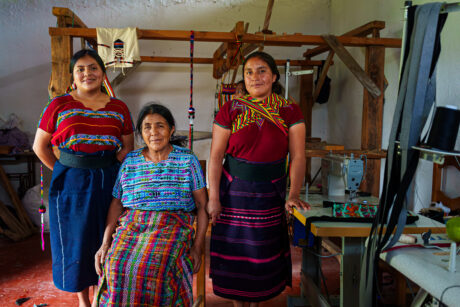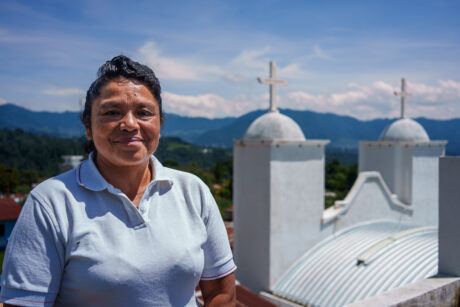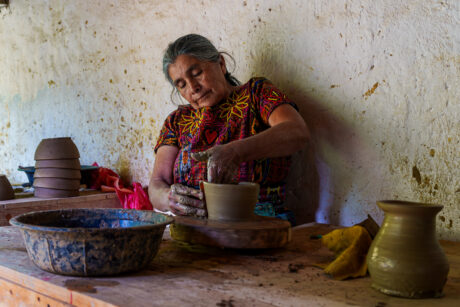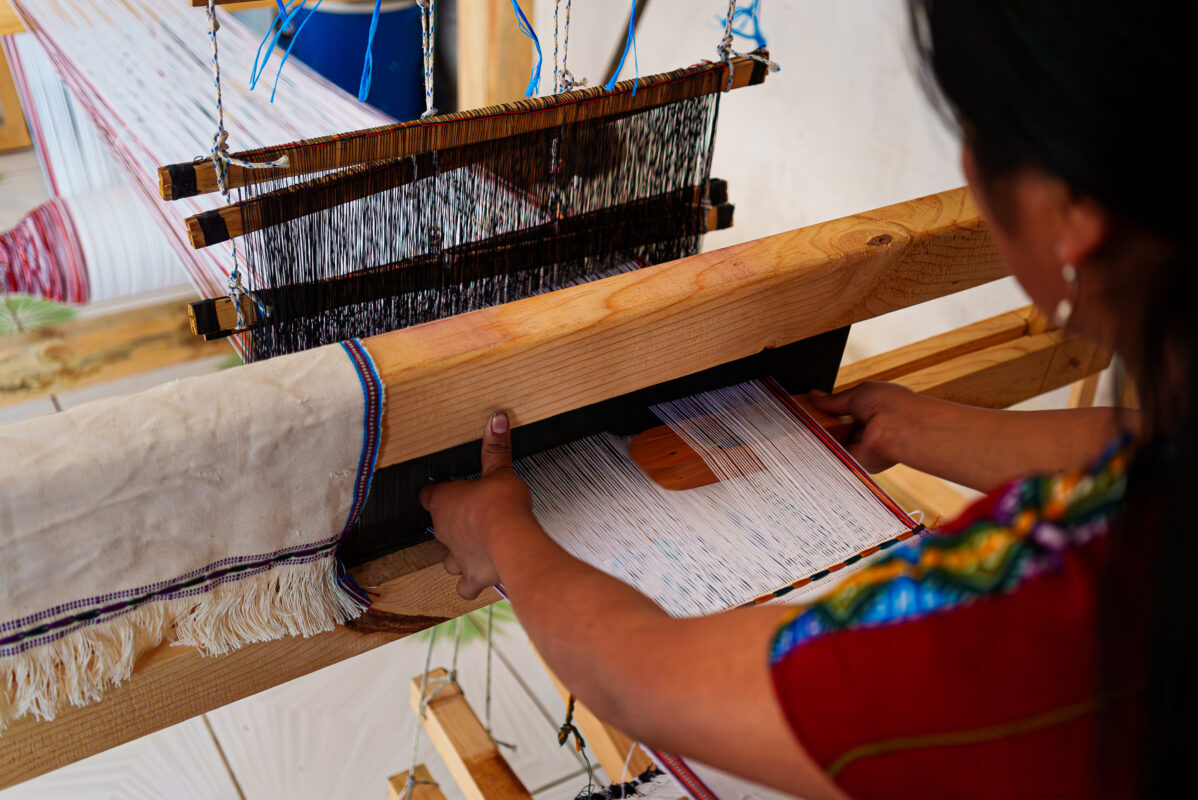In a tiny community called El Rancho, set high on a sparse hillside in the rugged Western Highlands of Guatemala, Matilde López García is filling her “pila,” a home water station for cleaning plates and clothing as well as collecting water for cooking. Until two months ago, this basic task wasn’t possible.
“I would go up the hill with buckets or a water jug, but I had to make several trips to have enough water to drink and to clean with at home,” says Matilde.
For nearly two years, only half of the 900 residents of El Rancho in Chiantla, Huehuetenango, had access to running water for one hour per day. Even in a small village of 900 people, this wasn’t enough. People like García hardly had enough water to save for drinking, let alone for washing clothes and other tasks.
The burden of this scarcity primarily fell to the village women, who are usually tasked with carrying water jugs up and down the steep hill from a natural water source at the base.
“We had a lot of conflict because of the water issue,” says José García Lopez, treasurer for El Rancho’s Community Council for Rural Development (COCODE in Spanish).
But through support from the U.S. Agency for International Development’s Peacebuilding Project, or Tejiendo Paz in Spanish, water was restored to the town, transforming daily life for nearly a thousand people.
Searching for solutions
Small, overlooked and under resourced, El Rancho had few options to secure water when the people’s supply was cut off.
But as the situation worsened, Jose and other representatives from the local development organization called COCODE organized and took their complaint to Chiantla’s municipal government. In response, government authorities eventually installed a new water pump and pipe system. But they left the project half complete without coordinating with the energy company to turn it on and pump water up to the town.
When Jose and other community members approached Energuate, the region’s electricity provider, the company accused them of operating the pump illegally and fined them an amount they couldn’t pay. A stalemate ensued.
“When they left us with [the fine], we saw this as a huge conflict, and we didn’t have any way forward,” he says.
Water scarcity and access to potable water is not only an issue in El Rancho. Across Guatemala, communities face varying degrees of drought, with nearly 50 percent of rural Guatemalans lacking access to drinking water.
Tension between communities and electricity companies compound this picture. Tejiendo Paz’s Deputy Chief of Party Luz Lainfiesta says that these conflicts reach back 12 years, arising when companies began charging prices that most poor families could not afford. This issue is a primary source of conflict, leading to protests, roadblocks and strikes in recent years.
“We have to remember that this conflict is magnified in areas with historical conditions of exclusion, poverty and vulnerability,” says Luz Lainfiesta. “Access to stable electrical energy with reasonable prices is a key element for economic development that is both inclusive and sustainable.”
But before tensions could escalate in El Rancho, Tejiendo Paz met the community at this inflection point. Members of COCODE sought guidance from Carlos Pinto, a community facilitator for Tejiendo Paz, who had begun working in El Rancho on other initiatives, for guidance.
Pinto then supported community’s representatives, mediating the negotiations between El Rancho and Energuate that resulted in a significant reduction of the fine. And most importantly, after meeting with COCODE and Pinto, Energuate turned on electricity for El Rancho, powering the pumps that had lain dormant for two years.
“The mediation functioned in such a way that the community and Energuate came together without fear of conflict, since there was an impartial third-party present,” says Pinto.
Now, water reaches all the households in El Rancho and the pumps operate twice instead of once daily. Families now have ample water for cleaning, drinking and irrigation and don’t have to make the long trek up and down the mountain for extra water.
“Before I had to carry the water, but now we have the water service,” says Matilde. “It is a great advantage to have the water pump, thanks to the people who organized themselves in the community and the support of institutions like [Tejiendo Paz].”
Peacebuilding strategies at work
This kind of conflict resolution is exactly what Tejiendo Paz aims to support across the four departments the project works in. From intrafamilial violence to issues resulting from COVID-19, the project works to build social cohesion, giving communities tools to address these conflicts and meet them without resorting to violence.
Tejiendo Paz is also working to address electricity needs at the departmental level in Huehuetenango and Quiché, supporting recently initiated “Technical Working Groups” designed to specifically address conflict in the energy sector. In several of the communities Tejiendo Paz serves, fewer than 50 percent of the people have electricity.
Multiple government institutions participate in these technical working groups, including the National Commission of Electrical Energy, the Ministry of Energy and Mines, the Human Rights Ombudsman, the Ministry of the Interior and Energuate. Tejiendo Paz provides technical assistance to the working groups, facilitating dialogue between communities and government authorities responsible for ensuring the distribution of electrical energy.
According to José García Lopez, “the project facilitated us reaching out to those in charge… as they told us, we are here to help with negotiations and trainings so that you can identify the ways to solve conflicts… The main thing that we learned as a COCODE is that working hand in hand with institutions is a good thing.”
Through working with government authorities at the municipal and departmental levels, as well as building relationships with communities, the project will continue to bring together citizens and authorities to find solutions to local conflicts.



